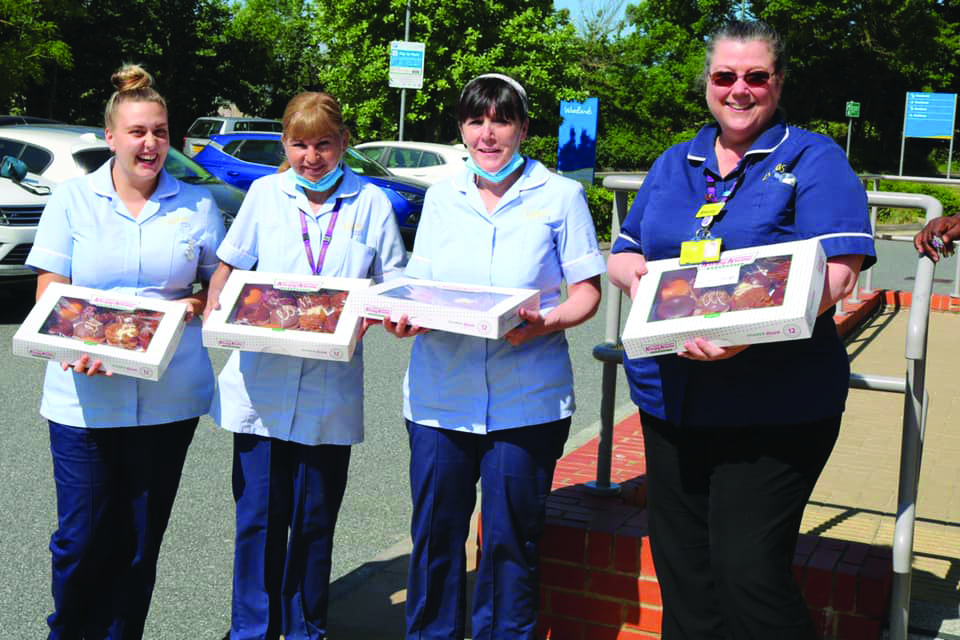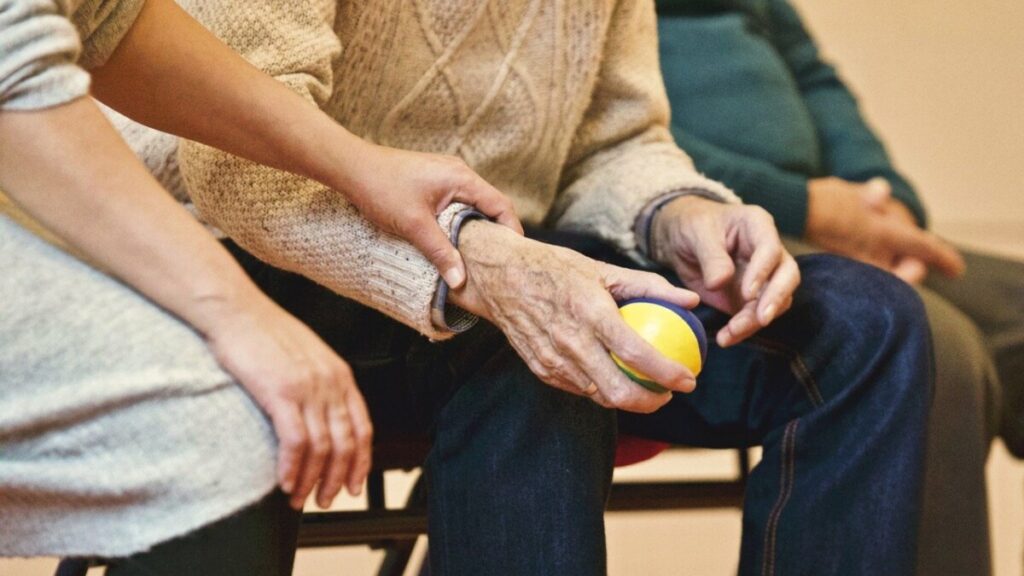SASC launches £125 million housing fund, & other funding news

Here’s a funding news update, including information on SASC’s £125 million housing fund for the South West of England, a green innovation fund, and more.

SASC seeks housing charities in South West for £125 million housing fund
Social and Sustainable Capital (SASC) is seeking borrowers for the new fund – Social and Sustainable Housing II (SASH II) – with a particular focus being charities in the South West involved in homelessness, domestic violence, or work with asylum seekers, young people, and those with addiction or mental health issues.
Advertisement
This will be SASC’s second housing fund designed in partnership with charities to meet their specific financial needs.
SASH I raised almost £75 million and, so far, has provided £50 million of secured loans to 16 UK housing charities, putting over 625 beds into their ownership.
In March, SASC’s Business Development Manager Miki Vyse will spend two weeks touring the area meeting with charities working in housing, housing associations, local MPs, support services organisations and other interested parties to discuss the new fund, how it works, and what it could offer social sector organisations in the region.
Vyse said:
“With the launch of SASH II this spring, we want to engage charities and social enterprises in the Southwest who want to increase their provision of safe, quality homes and support for the vulnerable people they serve.
“I am really looking forward to touring the South West in early March starting in Bath and Bristol. I will be attending The Bath Sleep-Out organised by Julian House in Alice Park on Friday 4 March and will be raising money for the charity and meeting with the organisers. I will then move on to Plymouth on 15 March, then Cornwall and finally Exeter.
“Our intention has always been to spread the fund across the UK and support organisations from a range of sectors and a range of localities. The Southwest is expansive region with a diverse population and homelessness is a major issue for cities like Bristol and rural areas including in Cornwall – we are looking forward to engaging with organisations right across the region.”
Charities interested in finding out more about social investment that would like to arrange a meeting Miki Vyse, can contact her on: mi**@******************le.com.
Editor’s note 28 February 2021: we originally posted the sum available incorrectly as £12.5 million. We have now corrected this.

Green innovation fund offers up to 60% funding towards sustainability projects
A new green innovation fund is offering charities and social enterprises up to 60% funding towards projects to help them deliver sustainable products, processes or services.
The £400,000 grant scheme is managed by Eco-I North West (NW), a £14 million research and development programme which gives SMEs including not for profit or social enterprises and charities access to a regional knowledge base, research facilities and skills involving six of the region’s leading universities – Lancaster, Central Lancashire, Cumbria, Liverpool, Liverpool John Moores and Manchester Metropolitan.
The total value of the project proposed must be no less than £5000 and no greater than £24,999, and the full criteria for the fund can be found here.
Since its launch two years ago, more than 100 SMEs have collaborated with universities to test their ideas which could help solve global challenges such as water supply and quality, waste, energy, resource efficiency, natural capital, air quality, and food security.
These new grants aim to accelerate these low carbon innovations from research to commercialisation by match funding prototypes, pilots and demonstration systems.
Andy Pickard, Manager of the Centre for Global Eco-Innovation, which delivers the Eco-I NW programme, said:
“Eco-I NW opens up such a huge academic regional resource to SMEs. It offers the opportunity for the North West to create an ecosystem which accelerates our transition to a low carbon economy. This is a scheme which should allow businesses to access grants quickly and try new things.
“I would encourage leaders of enterprises in the North West to start a conversation with us about how Eco-I NW could help to reduce costs and their carbon footprint, improve performance, and future proof their business in a low carbon future.
“More than 100 enterprises from a wide range of sectors, disciplines and project themes are already collaborating with the partner universities and could double their potential return on R&D investment. These grants will further support those already working with the universities, and expand the benefits Eco-I NW can offer to even more SMEs to bring to market even more sustainable products, processes or services.”
Eco-I NW aims to work with more than 300 organisations, supporting the development of 135 new innovative solutions which will save 3,850 tonnes of CO2.

Freemasons donate almost £5m in Covid relief programmes
The United Grand Lodge of England (UGLE) has awarded more than £4.7 million across the UK through four Covid-19 relief programmes, focusing on community support, food support, domestic abuse, homelessness and mental health.
Covid-related donations from Freemasons began in 2020. The donations are being used to help communities in areas including foodbanks, support for unpaid carers, personal protective equipment (PPE), schools, mental health, homelessness, supplies for hospitals and hospices, domestic abuse, tablets, funds for NHS workers, ambulances and equipment.
Freemasons also worked 18 million hours as volunteers in a range of different areas, including driving vulnerable people to hospital, preparing meals, taking care of people at risk and organising care packages, as well as producing scrubs, PPE and hand sanitiser.
The UGLE, the governing body for Freemasons in England and Wales, helped to provide essentials to vulnerable people and those that were shielding, activity packs for isolated older people and young children, podcast recordings for those affected by vision impairment. They also donated care packages for care home and NHS staff, hardship grants for those in need, home comforts for Covid-19 patients, and transport and equipment provision for medical professionals responding in the community.
Other support has included:
- At least 141,150 visors and face masks donated, and more than 3,000 sets of scrubs and gowns to hospitals, care settings and hospices.
- More than 130,000 meals for those in need and approximately 60 food banks supported.
- More than £165,000 donated in 2020 to help protect women and children from domestic abuse.
- To support mental health issues, more than 130,000 children and young people are currently being supported by the Freemasons. Alongside this, almost 1,400 adults benefited from better support.
- Freemasons are supporting homeless people with more than 30 different initiatives. A total of 39 charities have been helped. Of these, 15 individual Emmaus organisations have received grants.
- Freemasons donated 300,000 meals and 38 tonnes of food to homeless people, women’s refuges and vulnerable people, supporting more than 120,000 individuals in total. £560,000 was donated to provide meals and help numerous foodbanks.
Dr David Staples, Chief Executive of the UGLE, said:
“During these last two years, we set out to donate at least £3 million to Covid-related causes and we have exceeded our expectations by donating almost £5 million. It is with great pride that I see all Freemasons have rolled up their sleeves and worked hard to do their best and help those most in need.
“Our response to the pandemic shows what Freemasonry is all about; supporting those in need, giving back to our communities and volunteering where it can make a real difference. Freemasons have been doing this for more than 300 years, and I am proud of the time and commitment that our members have given to support the nation in its fight against Covid-19.”

National Lottery Community Fund to open round 2 of Social Enterprise Support Fund
The National Lottery Community Fund is offering grants between £10,000 and £100,000 to social enterprises to help them recover from the pandemic, through its Social Enterprise Support Fund – Round 2 (England).
The fund opens for applications at 1pm on Monday 28 February, and closes at 1pm on Thursday 24 March.
The funding can be used for:
- Helping to get social enterprises back on track. This might be the costs of getting trading back up and running, supporting outreach and marketing, supporting costs while the business gets back to full strength, developing new markets and services etc.
- Supporting work with recovering communities. This might be work related to supporting communities that have been hard hit by Covid-19, for example, supporting people to get back to work, helping marginalised children catch up with education, supporting families who have been bereaved, providing services for people affected by long Covid etc.
Social enterprises can apply if the majority of the people and/or organisations they support live and/or are based in England, if their annual income is between £20,000 and £1.8 million, and if they are substantially reliant on income from trading to deliver social impact.





